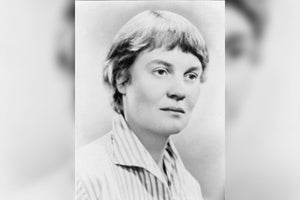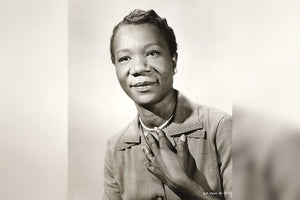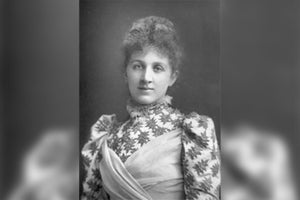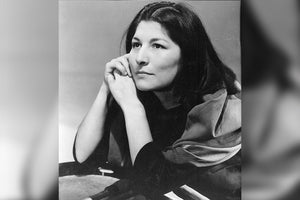Who is Marian Anderson?
Marian Anderson was an American opera singer born on February 27, in South Philadelphia. She sang a vast range of musical genres with top-notch orchestras in stages all across America and Europe.
She was also an influential African-American artist figure during the fight in overcoming racial discrimination in the United States which happened around the mid-twentieth century. She recounts the racism she faced as her popularity and career developed in her autobiography.
After a racial segregation incident in which the DAR boycotted her performance in the Constitution Hall, her name became well-known. With the support of the First Lady at that time, Eleanor Roosevelt, and President Roosevelt himself, she was able to perform a widely adored concert on the famous Lincoln Memorial steps. She sang in front of approximately 75,000 audiences.
Besides, she has served at the United Nations as a Human Rights Committee delegate and as a Goodwill Ambassador as well for the US State Department. In the 1960s, she was a crucial figure in the civil rights campaign. And, in 1963, she received the first Medal of Freedom from the President.
Five Facts about Marian Anderson
- Marian Anderson is regarded as one of the greatest contraltos of all time in the United States.
- She made history as the first African-American performer to sing at the White House.
- She made her debuts in Europe in Berlin and London in 1930 and 1932.
- When she was ten years old, Marian decided to join the People's Chorus of Philadelphia, where she was a frequent soloist.
- Marian’s father died when she was only 12 years old.
Marian Anderson Biography
Early Life
Marian Anderson was born into a modern household in Philadelphia. Her father was a coal and ice salesman, and her mother was a caretaker. Her parents were faithful Christians. Also, the entire family was a member of Union Baptist.
Since she was a child, she has shown a tremendous talent for singing. Marian's aunt, Mary, was very involved in the church's musical activity, and she persuaded Marian to participate in the young church choir when she was six years old.
Marian's aunt arranged her performances at local events, where she earned 50 cents at most for a few songs. When she was in her early teenage years, Marian started to earn up to five dollars for performing, which was a significant amount at the time.
Marian went to Stanton Elementary. However, she did not pursue her education because her parents couldn’t afford music school. But giving up was not an option for her, she decided to perform anywhere she could and learn from those happy to share their knowledge with her.
Anderson applied to the Philadelphia Music Academy, an all-white music program, after high school but was denied due to her ethnic origin. Anderson decided that she should take another way. Then, with the support of the Philadelphia black community, she continued her studies privately in her hometown.
Career
Marian entered a competition when she was 23 and took first place, winning out over 300 other singers at Lewisohn Stadium. After this achievement, she gained public attention. This also resulted in her receiving some sponsorships, allowing her to pursue her studies in the United States.
In fall 1929, Marian performed at the Orchestra Hall, located in the city of Chicago. Two members from Julius Rosenwald's philanthropic institution, the Rosenwald Fund, were in the audience. After seeing her talent and ability, the representatives then advised Marian to try for the Rosenwald Fellowship program. She applied and received a $1500 fund to continue her education in Berlin.
Anderson made her European debut at the Wigmore Hall in London in 1933. She then went on a European tour. Ironically, she did not encounter the discrimination she had encountered in America there. Many conductors and composers of big European orchestras soon fell in love with her voice.
In 1924, her manager convinced her to return to and perform in America. She then went on to travel the United States and Europe for the next four years. Anderson was offered opera roles by many European stages, but she rejected them all due to her lack of acting experience.
Marian finally agreed to perform at the Metropolitan Opera House in New York in 1955. She sang Ulrica in The Masked Ball. Since the Metropolitan began operating, this was the first time an African American had sung with it.
Legacy and Death
Marian ended her career as a singer in 1965. Even after this, she proceeded to perform in public. She often narrated Aaron Copland's Lincoln Portrait, which her nephew James DePriest conducted.
In 1939, she was awarded the Spingarn Medal by the National Association for the Advancement of Colored People, and in 1941, she received the $10,000 Bok Award from her hometown of Philadelphia.
Robert Shaw performed a tribute concert at Carnegie Hall, New York on February 27, 1997, the day of her 100th birthday, with names like Jessye Norman and Roberta Peters among the performers. On the same day, the Marian Anderson Study Center was founded at the University of Pennsylvania to display her records.
![]() Fast Shipping
Fast Shipping![]() Subscribe to our Newsletter
Subscribe to our Newsletter![]() 🌟 New Global Competition 🌟
🌟 New Global Competition 🌟















